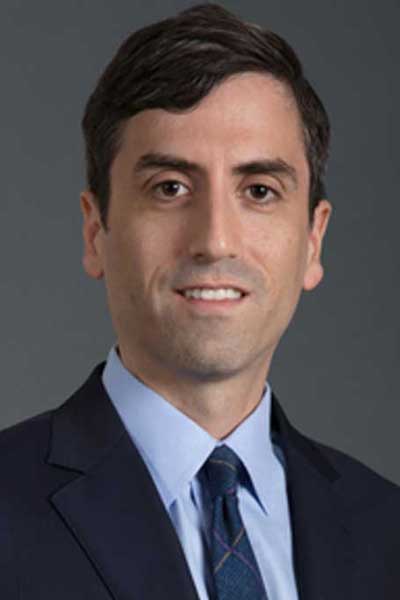We Are Central Profile: Fed Historian Jonathan Rose
At the St. Louis Fed, new chapters are being written in our story every day by employees in every division, department and unit. Our We Are Central profile series introduces you to people who help make the Bank central to the nation’s economy.
Why does the Fed need a historian? One answer is that the past can help us understand the present, said Jonathan Rose, who became the Federal Reserve System historian on Nov. 1, 2022.

Jonathan Rose
“I have always found policymakers to be intensely curious about the history of their institutions and about using history to identify salient features of the present,” Rose said.
Among other duties, Rose consults with the FRASER team. FRASER is a digital library of U.S. economic, financial and banking history—particularly the history of the Federal Reserve System—that is open to the public and based at the Federal Reserve Bank of St. Louis.
The St. Louis Fed also hosts the historian on behalf of the Federal Reserve System. The Fed historian plays an important part in making history accessible to those interested in it, including policymakers, researchers, students, educators and the general public.
Rose, who received his Ph.D. in economics from the University of California, Berkeley, has served at the Board of Governors of the Federal Reserve System and U. S. Department of Treasury. He now splits his time between the Fed historian position and his role as senior economist and economic advisor at the Federal Reserve Bank of Chicago. In an interview below, he talks about his dual roles, the “menu” of historical events that economic historians develop and the need for historians to also keep up with current events.
What does the Fed historian do?
The position, as I understand it, was originally created for the 2013 centennial of the Fed. There has been one historian before, Gary Richardson, who is perhaps the country’s leading historian of the Fed System and a professor at the University of California, Irvine. Among other lasting legacies, Richardson set up the Federal Reserve History website.
There are several components of the current historian role:
- One is to continue to build out the Federal Reserve History website.
- Another is to work with the FRASER team here in St. Louis and help them engage with users and add content.
- And the Fed historian is a member of the committee that oversees preservation decisions, including about what goes into FedPreserve, the internal system used by Reserve banks to store historically significant materials.
I think, in general, historians are pro-preservation as well as pro-accountability and transparency for a central bank in describing the past.
What is the link between your two roles as Fed historian and senior economist?
I’ve done a lot of historical work in the course of being an economist in the Federal Reserve System—for example, writing speeches for governors in D.C. about the history of the Fed, being an on-call consultant for all matters historical, or contributing from the deep expertise you get from long-term history research. I have always found policymakers to be intensely curious about the history of their institutions and about using history to identify salient features of the present.
For me, bringing history to policy effectively has always meant I need to have one foot in the past and one in the present. I never want to fall in the trap of not knowing about anything that happened after 1950. So that’s my Chicago half: I continue to be involved in policy because I enjoy serving our country in that way, and also so that I can be effective as the historian.
The opposite is also true, that policy happening today informs my history work. I have a friend who’s a professor of economic history, and he likes to toy with people by saying that he only reads the news so that he can better understand the past. It’s a good reminder, though, that the past is more alive than you think. In policy settings, it can be useful to remember that the path our history has taken was not inevitable, but a series of contingencies and idiosyncratic events. In this way, historians ironically can help envision the future, as we are maybe not too stuck in the present.
Is the relevance to current events one of the big reasons you’re interested in history?
One way to think of economic historians is: They develop a menu of events that have happened in the past, and they don’t necessarily always try to link those past events to today. Over time, though, those past events may become relevant to the present, but in unpredictable ways. Historians need to prepare that menu in advance, so that when novel situations arise and people reach for history, we have something to draw on without doing years of research.
The most consequential analogy is the Great Depression, which has informed the Fed’s response to both the 2008 financial crisis and the COVID-19 pandemic. Financial crises are thankfully rare. If you want to understand them, that becomes an economic history exercise right away.
Last year, I was working on crypto. A number of colleagues told me that they were happy to have an historian involved, because they saw elements of the past in crypto. They also thought the skill of an historian is to understand alternate ways that the economy has worked over history. It was funny, though—a historian working on the future of finance.
Deep history comes from years of investment that usually can’t be snuck into the time between FOMC meetings. In that way, connecting the past to the present is challenging, but it’s what I’m passionate about.
This blog explains everyday economics and the Fed, while also spotlighting St. Louis Fed people and programs. Views expressed are not necessarily those of the St. Louis Fed or Federal Reserve System.
Email Us


